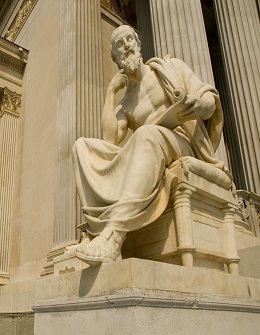Melancholy as a healthy strategy in times of great human crises
Keywords:
Utopias, Pessimism, Greece, Philosophy, FreedomMain Article Content
What happens in our thinking and feeling when we visit a certain historical moment of the past, find references, situations, and thoughts that make us think about the present?
Does the tango song ‘Cambalache’ compose by Enrique Santos Discépolo ensure the timelessness of the world’s misfortunes? However. specifying that it happens in “506 and in (the year) 2000 as well”, leaves a time frame of history outside of this sentence. Discépolo does not claim to be a historian but rather a philosopher. And a philosopher of skepticism like few others since he allows us to sing his philosophy since he made it known to the public.
But this is no more than a deliberate detour to point out that, in tango, skepticism operates as a radical expression of shared similarity due to the wide variety of things and characters that insist on repeating themselves throughout history. This essay aims not to reflect on continuity but on what is discontinuous and, incidentally, to question the notions of freedom and utopia. Allowing us to place freedom no longer in the field of the ideal but that of its origin while questioning the notion of freedom as an ideal will allow us to support the idea of freedom as a possible exercise.
What I propose is to reveal that the idea of the end of the world has always existed throughout history but that it has been questioned by exercises in the freedom that created conditions of resistance, which protected its practitioners from succumbing to needy resignation. In times where this idea is established in the field of culture as almost hegemonic, characters or events arise that demonstrate the possibilities of being placed in it, without being permeated with the prevailing pessimism, and establishing a consistent way of life; a certain degree of bitterness turned into a method, or according to some: a melancholic strategy to transcend life.
Heródoto. Historia Obra completa. Madrid: Ediciones Cátedra; 2018.Heródoto .
Berruecos B. Heródoto en la historia de la filosofía griega. Tesis doctoral. Barcelona: Departamento de filología griega, Universidad de Barcelona; 2013. Disponible en: https://www.tdx.cat/bitstream/handle/10803/117852/BBF_TESIS.pdf
Kant I. ¿Qué es la Ilustración?. 2ª ed. México: Fondo de cultura económica; 1979. Disponible en: https://adultosmayores.unr.edu.ar/wpcontent/uploads/2020/08/6834-Kant-Immanuel-Qu%C3%A9-es-la-Ilustraci%C3%B3n.pdf
Doña F. Hipócrates y Demócrito. Medicina y Arte; 2011. Citado: 2022 09 20. disponible en: https://medicinaybellasartes.blogspot.com/2011/07/hipocrates-ydemocrito.html
Yourcenar M. Memorias de Adriano. Barcelona: Edhasa; 1998.
Eco U. El Nombre de la Rosa. Editorial Lumen; 1982.
Zapata M (Trad.). Cuadernos de notas a las Memorias de Adriano. En: Yourcenar M. Memorias de Adriano. Barcelona: Editorial Planeta; 2002; p. 241-258
Le Goff J. La edad media y el dinero. Ensayo de Antropología Histórica. Madrid: Ediciones Akal; 2012.
García JÁ. Historia Religiosa de Occidente Medieval. Madrid: Ediciones Akal; 2012.
Allouch J. Muy despacito... la libertad. En: Alberto Sladogna Escucharte; 2017. Cited: 2022 09 25;disponible en: https://colectivoescucharte.blogspot.com/2017/10/jean-allouch-muy-despacito-la-libertad.html
Echeverría B. La Modernidad de lo Barroco. En: Barroco y Blanquitud. México: Era; 2010.
De Unamuno M. Ensayos. Madrid: Aguilar; 1951.
Echeverría B. La Modernidad de lo Barroco. México: Era; 1998.
Menéndez J. Historia de la Literatura española, II. Madrid: Everest; 1983.
Stulwark D. La ofensiva sensible. Neoliberalismo, populismo y el reverso de lo político. Madrid: Caja Negra Editora; 2019.
De la Botié É. Discurso de la servidumbre voluntaria. Madrid: Ediciones Akal; 2022.De la Botié É . Discurso de la servidumbre voluntaria. Madrid: Ediciones Akal; 2022. [Google Scholar]
Downloads

This work is licensed under a Creative Commons Attribution-NonCommercial 4.0 International License.
The copy rights of the articles published in Colombia Médica belong to the Universidad del Valle. The contents of the articles that appear in the Journal are exclusively the responsibility of the authors and do not necessarily reflect the opinions of the Editorial Committee of the Journal. It is allowed to reproduce the material published in Colombia Médica without prior authorization for non-commercial use


 https://orcid.org/0000-0001-6237-4348
https://orcid.org/0000-0001-6237-4348